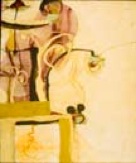Dr Andrew Gibbs
NEUROPSYCHOLOGIST.COM.AU
Bsc (hons) (Adel.) Msc. Phd. (Melb.) MAPsS


St Vincents & Mercy Hospital
Private Consulting Suite 33,
141 Grey St
East Melbourne, Victoria (Australia), 3002
TEL + 61 03 90362246



SERVICES: MEDICOLEGAL
Dr Andrew Gibbs is a clinician with over 25 years experience in Civil and Criminal court matters, where he has provided reports and evidence in various jurisdictions (i.e. at Royal Commission, Supreme Court, County Court, District Court (NSW-Criminal), Magistrates Court, VCAT, Victorian Guardianship Board and other tribunals). Dr Gibbs has conducted assessments in various custodial settings.
Civil Matters include;
TAC Individual or Joint Medical Assessments (Neuropsychology)- transport accident.
Workcover Section 112 and 98C & Impairment / Neuropsychological Assessments
Approved for Independent Medical Assessments (Neuropsychology):
Civil Claims/ Wrongs.
Competence and Capacity (Guardianship & Administration)
Wills- assessment prior to making a Will; or consideration of disputed Wills.
Assessments of feighning of memory/ neuropsychological disorder.
Insurance matters
Criminal Matters include;
Neuropsychological Assessments and Psychological Diagnosis.
Capacity to Stand Trial
Capacity to Plea
Assessment of individuals or witness statements with respect to memory or psychopathology.
Consideration of the phenomena of “infantile amnesia”.
Memory & Suggestibility
Claims of “recovered” or “repressed/ dissociated” memory.
Assessments of feighning of memory disorder.
Issues of impulse control and voluntariness of actions (“mens rea”).
Forensic Neuropsychology.
The matters he has involved in are frequently complex, where he has been involved in record payout civil matters, as well as difficult criminal trials. Dr Gibbs has a number of appeals court decisions regarding the admissability of evidence, where this has frequently covered new legal ground with respect to matters concerning memory and psychopathology. This has included being critical of mental health professionals where opinion is not made based on sound science and professional practice.
As an expert, Dr Gibbs is independent, where an opinion is referenced and made on the basis of scientific and professional knowledge. His obligation is to educate and inform the court on the basis of factual knowledge where the law considers such opinion to be of relevance. Such opinion does not advocate for a particular party, but serves to educate and inform about the current scientific and professional basis for a psychological phenomenon where this might be relevant to legal matters.
Medicolegal services include the formal neuropsychological assessment of individuals to objectively answer and inform about such matters as;
-
✦ memory,
-
✦ reasoning and comprehension,
-
✦ impulse control,
-
✦ competence and capacity,
-
✦ insight and awareness
-
✦ psychopathology & emotional responses
-
✦ trauma
-
✦ the nature or level of impairment.
Careful consideration is made as to the impact of the person’s functioning in everyday life, not just from a cognitive but also in terms of emotional, behavioural, functional, and interpersonal effects. Neuropsychological function is considered within the context of personal history, as well as with respect to any developmental or lifespan issues.
Neuropsychological assessment considers the consistency of findings in the context of history, including whether there is potential feighning or elaboration of cognitive impairment.
Forensic neuropsychology services also include the consideration of witness or defendant statements, (or alternately the statement (s) of plaintiff or defendant), where a knowledge of aspects of cognition (eg; memory, impulse control, psychopathology, competency) can assist in understanding the facts of a particular matter or issue.
Whilst assessments can relate to knowledge of brain function and cognition/ psychopathology, opinion is also provided regarding the nature of memory where there is no such disorder, including the scientific basis as to a claim that might be reliant on memory. For example, identification evidence, influences upon memory that can be relevant, reviews of past statement and records where this might concern matters memory.
Opinion is provided as to whether any particular issues are present or absent, where such independent science-based professional opinion can be relevant to either party in a legal case.
Detailed assessments are made, and the reasons and basis to the opinion clearly articulated and referenced according to the facts.

All material and images are copyright.
Permission has been kindly granted for use of images by the artist Prof KatherineSherwood where these communicate ideas relevant to the neuropsychological services provided, though the art speaks for itself.